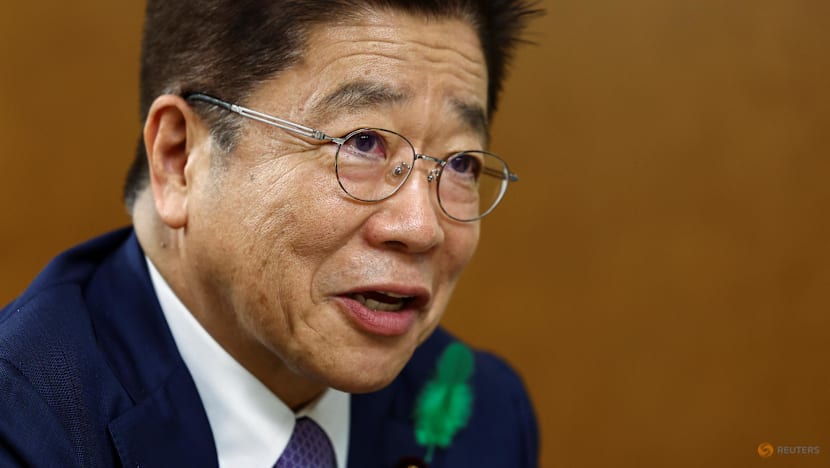Japan urges G7 to stay vigilant to excessive FX volatility

Japan's Finance Minister Katsunobu Kato speaks during an interview with Reuters at the Finance Ministry in Tokyo, Japan on Apr 17, 2025. (File photo: REUTERS/Issei Kato)
WASHINGTON: Japan told its G7 counterparts that policymakers must be vigilant against excessively volatile and disorderly moves in the currency market, Finance Minister Katsunobu Kato said on Wednesday (Oct 15).
Kato also said he confirmed with US Treasury Secretary Scott Bessent an agreement made last month on exchange-rate policy during bilateral talks, held on the sidelines of the G7 and G20 finance leaders' gathering in Washington.
"We've seen some rapid yen falls since last week. It's desirable for exchange rates to move stably. We are vigilant to any excessive volatility in the currency market," Kato told reporters.
The yen has whipsawed in recent days due in part to Japan's political uncertainty, as new ruling party leader Sanae Takaichi's bid to become the country's first female prime minister was thrown into doubt when her ruling party's junior coalition partner quit.
Kato said he would not comment on what was driving recent exchange-rate moves, when asked how Japan's political turmoil was affecting yen moves, but said in general political stability was desirable for the economy.
In a joint statement issued last month, Japan and the US reaffirmed their commitment to "market determined" currency rates, while agreeing that foreign exchange interventions should be reserved for combating excess volatility.
A weak yen has become a political pain point for Japanese policymakers as it inflates the cost of living for households by boosting import prices for raw material and fuel.
The Bank of Japan's exit from a decade-long, massive stimulus last year and past two interest rate hikes came in the wake of political calls for measures to combat sharp yen falls.
While sticky food inflation has led some hawkish board members to call for a near-term rate hike, the BOJ has kept rates steady since raising them to 0.5 per cent in January as it focuses on scrutinising downside risks to the economy from US tariffs.
"It's something the BOJ ought to decide," Kato said when asked how the central bank should respond to rising living costs from a weak yen.
While the weak yen and rising crude oil prices likely played a part in driving up prices in the past few years, it was hard to judge how yen falls were affecting prices recently, he added.















